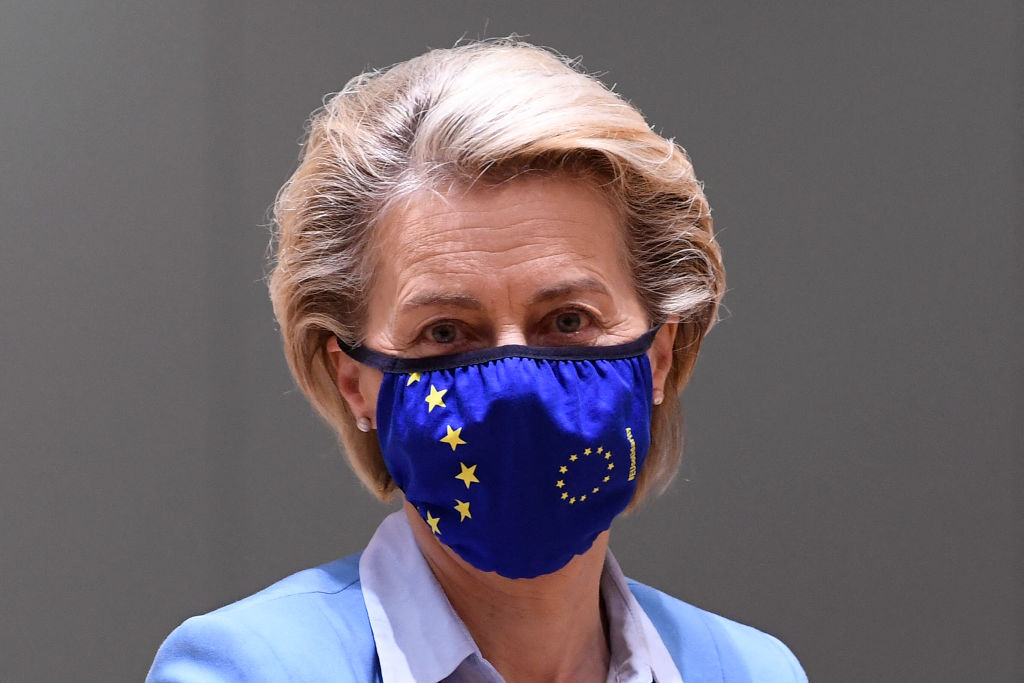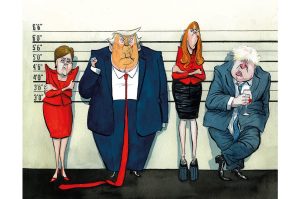The EU’s decision to take control of the vaccine program was hardly a roaring success. The eurozone’s economy remains stuck in recession. And the EU’s foreign policy is a mess, as events in Belarus have just made clear.
Still, despite the evidence that she isn’t very good at managing anything, no one can argue that the European Union’s president Ursula von der Leyen lacks self-confidence. Last night, she made it clear there could be no possible compromise over the Northern Ireland protocol. The trouble is that she could easily bring the whole trade deal between the EU and the UK crashing down.
It was always likely that the deal between the EU and the UK, especially as it applied along the fractious border between Northern and southern Ireland, was going to need some flexibility and goodwill to work successfully. By keeping Northern Ireland inside the Single Market and the customs union, while the rest of the UK left, it was always a messy compromise.
Now that the agreement has been put in place, it has become clear that it does not appear to be working very well. As the Europe minister Lord Frost has started to point out, it may well have to be renegotiated.
There should not be anything too controversial about such a view. After all, no major country had ever left the EU before — and as the new trading arrangements are put in place it should be perfectly fine for one side or the other to argue that some changes are necessary.
That might or might not be possible, but it is reasonable at least to suggest a conversation about this. But, hey, this is the EU we are talking about. Flexibility is not exactly a speciality. In Brussels, Von der Leyen made it clear that nothing could be done about it. The protocol, as written, she insisted, was the ‘only possible solution to ensure peace and stability in Northern Ireland while protecting the integrity of the EU single market’.
Really? It always seemed an exaggeration that the integrity of the Single Market was genuinely threatened by a tidal wave of illegal goods smuggled into the EU over the Northern Irish border, or that peace and stability was really threatened by some customs rules.
As so often, the EU is overplaying its hand here. It is increasingly putting itself in a position where the UK might as well walk away from a free trade agreement with the EU. Britain’s trade with the rest of Europe has already dropped significantly — and what remains is little impacted by quotas and tariffs anyway.
What’s more, the cost of this agreement to Northern Ireland is already far too high. Von der Leyen is assuming, as Michel Barnier did, that the UK will always back down. But it could soon be simpler to ditch the trade agreement, bring Northern Ireland back into the UK’s single market and customs union, and trade on third party terms with the EU. That is not what Brussels is looking for — but it is increasingly likely that is where we will end up.
This article was originally published on The Spectator’s UK website.


















